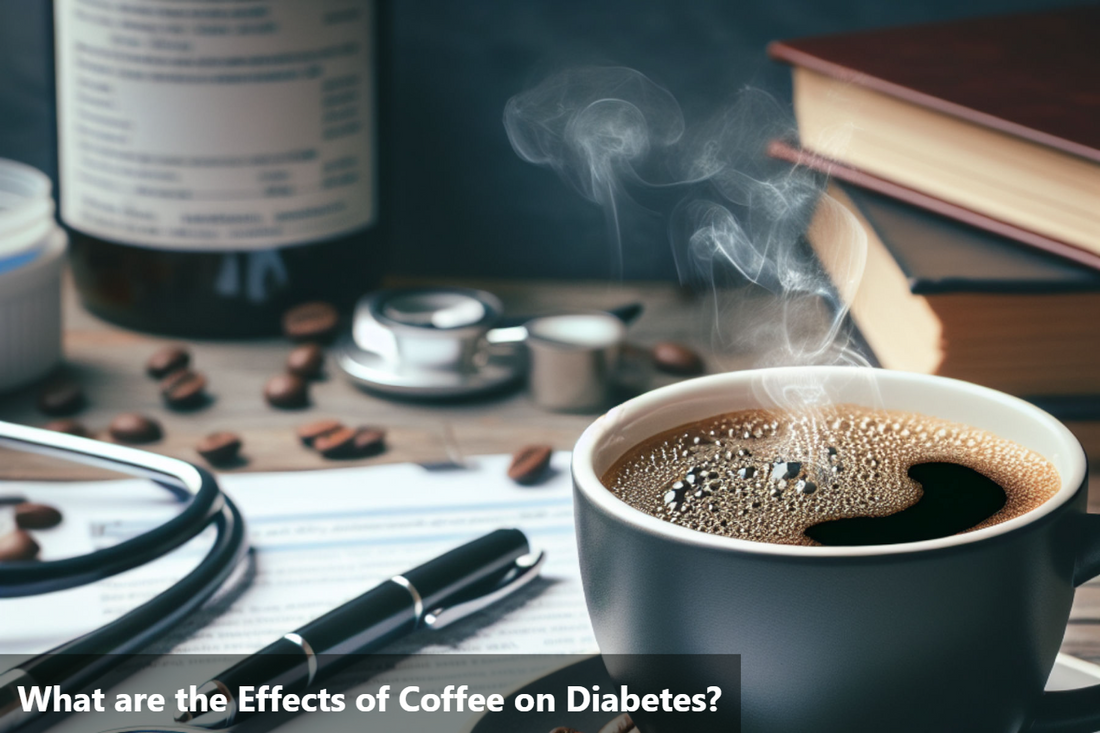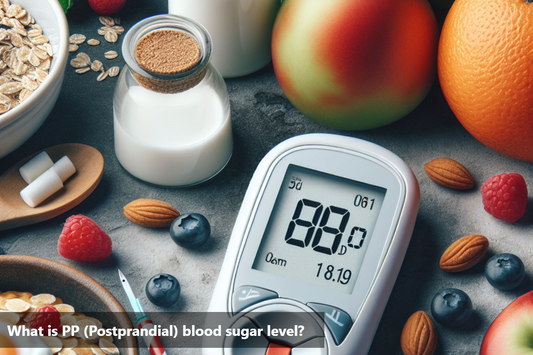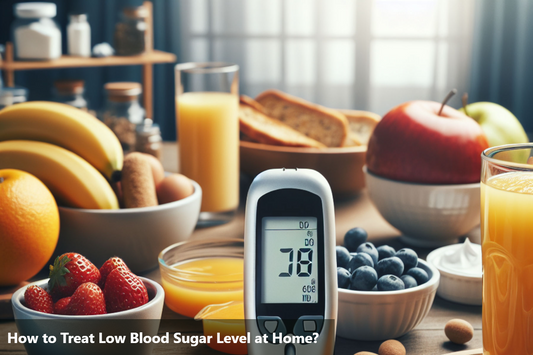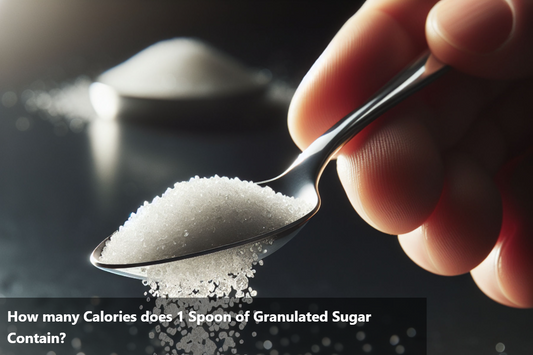Diabetes is a chronic condition characterized by high levels of glucose in the blood, either due to inadequate insulin production or the body's inability to respond to insulin properly. Managing blood sugar levels is crucial for individuals with diabetes to prevent complications.
One popular beverage that has garnered attention for its potential health benefits in relation to diabetes is coffee. When consumed in moderation, coffee has been suggested to play a role in managing blood sugar levels. Some studies indicate that coffee may improve insulin sensitivity, helping the body regulate blood sugar more effectively. However, it is important to note that individual responses to coffee can vary.
How Does Coffee Affect Blood Sugar Levels?
Whether the coffee is consumed with or without additives like sugar or cream here's how coffee can affect blood sugar levels:
-
Short-Term Effects:
Caffeine: Coffee contains caffeine, which can lead to a temporary increase in blood sugar levels by stimulating the release of adrenaline. This can cause the liver to release glucose into the bloodstream, leading to a slight rise in blood sugar levels.
Additives: Adding sugar, flavored syrups, or cream to coffee can significantly increase its carbohydrate content, leading to a more significant spike in blood sugar levels, especially if consumed in large quantities.
-
Long-Term Effects:
Insulin Sensitivity: Some studies suggest that long-term consumption of coffee may improve insulin sensitivity, which can help regulate blood sugar levels more effectively. However, the exact mechanisms behind this are still not fully understood.
Type 2 Diabetes Risk: Moderate coffee consumption has been associated with a reduced risk of developing type 2 diabetes in some studies. This protective effect may be attributed to the antioxidants and other bioactive compounds found in coffee.
-
Decaffeinated Coffee:
Decaffeinated coffee may have similar effects on blood sugar levels as regular coffee, although to a lesser extent due to the absence of caffeine. However, the impact of decaffeinated coffee on insulin sensitivity and type 2 diabetes risk may still be present.
-
Individual Variability:
It's essential to note that the effects of coffee on blood sugar levels can vary from person to person. Some individuals may experience significant blood sugar spikes after consuming coffee, while others may not notice any significant changes.
-
Timing and Quantity:
Drinking coffee in moderation and being mindful of timing (such as avoiding consuming coffee on an empty stomach) can help mitigate its potential impact on blood sugar levels. Additionally, monitoring portion sizes and choosing low-carbohydrate additives can help manage blood sugar levels more effectively.
Ways to Incorporate Coffee for Individuals with Diabetes
Limit Added Sugars: Avoid adding sugar, flavored syrups, or sweetened creamers to coffee. Instead, opt for low-calorie or sugar-free alternatives such as stevia or monk fruit sweeteners, or enjoy your coffee black.
Watch Portion Sizes: Be mindful of portion sizes when drinking coffee. Stick to moderate amounts, typically defined as 1 to 2 cups per day, and avoid excessive consumption, which can lead to caffeine-related side effects and potential blood sugar spikes.
Choose Low-Carb Additions: If you prefer to add milk or cream to your coffee, choose low-carb options such as unsweetened almond milk, coconut milk, or half-and-half in small quantities. Be cautious with flavored creamers, as they often contain added sugars and can significantly increase the carbohydrate content of your coffee. When consumed in moderation and in its pure form, coffee can be a helpful component of a diabetes management plan.
Consider Timing: Avoid drinking coffee on an empty stomach, as this can lead to a more significant impact on blood sugar levels. Instead, enjoy your coffee with a balanced meal or snack that includes protein, fiber, and healthy fats to help stabilize blood sugar levels.
Negative Effects of Coffee to Take Into Consideration
Blood Sugar Spikes: Coffee can cause a temporary increase in blood sugar levels, particularly in individuals sensitive to caffeine. This effect may be more pronounced when coffee is consumed with added sugars or high-carbohydrate additives such as flavored syrups or sweetened creamers.
Adrenaline Release: Caffeine in coffee stimulates the release of adrenaline, which can trigger the liver to release glucose into the bloodstream. This can lead to a transient increase in blood sugar levels, especially in individuals with diabetes who may have impaired insulin function.
Gastrointestinal Effects: Some individuals may experience gastrointestinal discomfort, such as acid reflux or upset stomach, after consuming coffee, which can disrupt blood sugar control and overall well-being.
Bottomline
The consumption of coffee can have positive effects on individuals with diabetes. Research suggests that coffee may help improve insulin sensitivity, thereby aiding in better blood sugar management. Additionally, the antioxidants present in coffee can potentially reduce the risk of certain diabetes complications.
When incorporating coffee into a diabetes-friendly diet, it is advisable to opt for black coffee or coffee with minimal added sugars. Black coffee is low in calories and sugar, making it a suitable choice for individuals with diabetes. However, be cautious with high-calorie coffee beverages like lattes or mochas, as they can significantly increase sugar intake.
This Blog post is an initiative by DiabeSmart, to provide accurate and Nutritionist / Doctor approved information related to Diabetes. DiabeSmart is India's first Food brand designed specifically for Diabetics, that has been clinically tested on Diabetics and Pre-Diabetics to deliver 55% - 70% lower Sugar spikes. DiabeSmart is part of Lo! Foods - India's leading brand for Everyday Functional Health foods.







